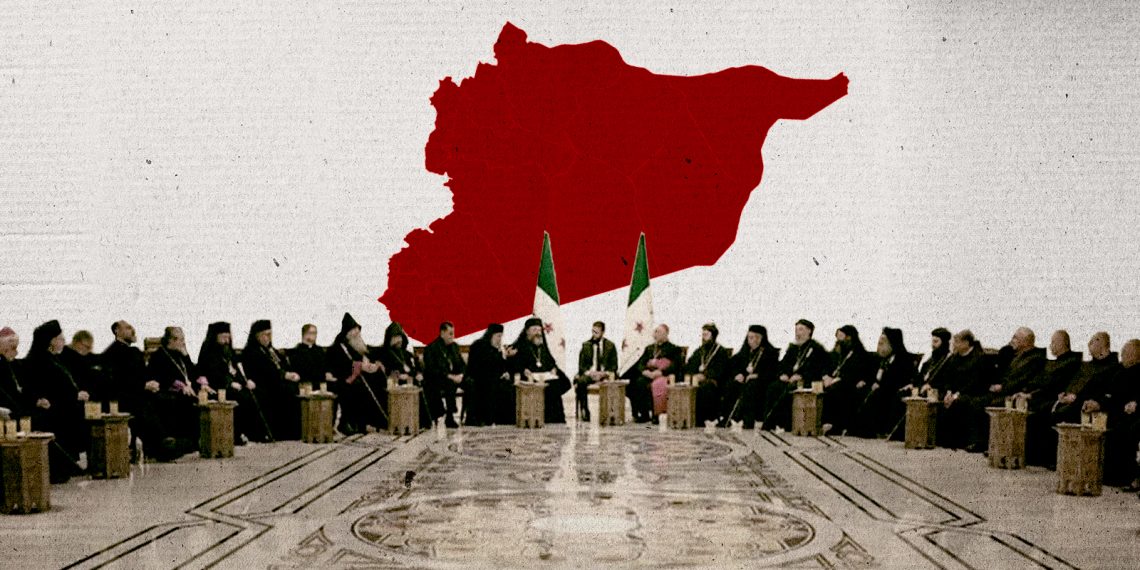In a significant development, the Syrian National Dialogue Conference, initially scheduled for January 4–5, 2025, in Damascus, has been postponed. The conference was expected to bring together around 1,200 representatives from across Syria to discuss the transitional process, establish committees for drafting a new constitution, and form a unified government to prepare for the upcoming presidential elections. However, the decision to delay the conference has raised questions about the underlying reasons and its potential impact on Syria’s political landscape.
Reasons for the Postponement
In an exclusive statement to 963+, Samir Sattouf, the general coordinator of the United Syrian National Gathering, confirmed that the postponement was anticipated. He noted that the new Syrian administration, led by Ahmad al-Sharaa, recognized the challenges of holding the conference in a rushed manner.
Sattouf explained, “The postponement is not due to external pressures, as rumoured, but rather logistical and technical reasons. It is essential to finalize invitations, consultations, and preparations to ensure the success of a conference of this scale.” He emphasized that such an event requires meticulous planning to meet precise standards.
Political analyst Mustafa Rostom echoed this view, telling 963+ that the delay was a natural outcome given several challenges. These included “the lack of a clear vision for the conference, ambiguity surrounding the criteria for selecting invitees, and the absence of international consensus.”
“It remains unclear who will represent Syrians in areas controlled by the SDF, as well as those in Suwayda and the coastal regions,” Rostom noted. “Addressing these regional frameworks and ensuring broad, transparent participation is critical.”
Journalist and analyst Ismail Khader offered another perspective, suggesting that the delay might be linked to the new Syrian administration’s intent to observe political shifts following the inauguration of U.S. President-elect Donald Trump. Speaking to 963+, Khader said, “This move may aim to gauge the U.S. position on developments in Syria.”
Implications for the Syrian People
Regarding the postponement’s impact on Syrians, Khader stressed that “the delay prolongs the existence of a one-sided interim government, potentially undermining the rights of Syria’s diverse communities.”
“There will likely be continued foreign interference and persistent governance challenges,” he added. The absence of a concrete date for the conference has heightened concerns about the future of democracy in Syria.
Rostom, however, downplayed the immediate impact on the general population. “The postponement of the conference will not directly affect Syrians, either positively or negatively,” he said. “What truly matters to them is the improvement of security and essential services.”
He highlighted that Syrians are eager for an end to security chaos, the resolution of personal vendettas, and the gradual restoration of basic services.
Debate Over Invitation Mechanism
The method of issuing invitations for the conference has sparked significant debate. Invitations were extended to individual figures rather than established political parties or entities. Journalist Ismail Khader criticized this approach, stating, “Inviting 1,200 individual figures does not constitute a genuine political solution.” He called for the inclusion of political entities with clear plans for resolving the crisis.
Conversely, Sattouf viewed the approach positively. “Inviting individuals from all sectarian and ethnic groups ensures broader representation of Syria’s diverse population,” he said.
“There must be no political quotas, as such arrangements have proven harmful in neighboring countries like Iraq and Lebanon,” Sattouf added.
He also noted that certain groups, including members of the Syrian National Coalition and the Negotiating Committee, had not been invited. According to Sattouf, the mandates of these entities expired with the fall of the Syrian regime as outlined in their founding charters. He stressed that demands for invitations as political institutions were unacceptable.
Ahmad al-Sharaa, the leader of the new Syrian administration, confirmed in media statements that the Syrian National Coalition would not receive an official invitation. However, he welcomed the participation of its members in a personal capacity. Coalition leader Hadi al-Bahra responded by stating that the coalition would decline participation if its members were invited individually, noting that no invitations had yet been received.
A Pivotal Opportunity for Syria’s Future
Despite the postponement, the Syrian National Dialogue Conference remains a highly anticipated event, seen as a potential turning point for the country’s political future. The conference is expected to lead to significant developments, including the dissolution of the People’s Assembly and all armed factions—such as Hayat Tahrir al-Sham—under the authority of the Syrian Ministry of Defense.
Additionally, the conference is likely to result in the formation of a committee to draft a new constitution and establish a new government. These steps would represent a critical advancement in Syria’s political transition and could reshape the nation’s political map.
This article was translated and edited by The Syrian Observer. The Syrian Observer has not verified the content of this story. Responsibility for the information and views set out in this article lies entirely with the author.


